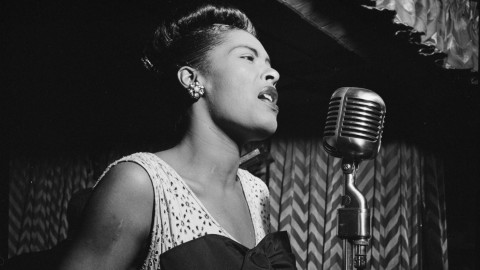
As legendary feminist activist Gloria Steinem once said: “The truth will set you free, but first it will piss you off”. For someone who possesses one of the country’s finest vocal talents, something about Lianne La Havas’ career has never quite felt like the perfect fit. Making the transition from a Paloma Faith backing singer to a Mercury-nominated soloist, her gentle guitar-work and quirky dress-sense quickly found her support slots opening for the indie bands of the 6 Music crowd; she was pitched as an inoffensive major-label songwriter with a nice voice.
As La Havas’ career progressed – and the neo-soul movement emerged – it was easy enough for media outlets to shunt her over into that camp, playing up her jazz elements, mixed-race ethnicity and friendship with Prince as symbols of authenticity. Amongst this was an artist who seemed frustrated by the limitations placed upon her, but hadn’t quite developed the language to speak out about it.
Although her 2012 debut ‘Is Your Love Big Enough’ and 2015 follow-up ‘Blood’ both contain moments of brilliance, by La Havas’ own admission, she fell foul; adhering to what her record label liked, rather than what she felt truly proud of. And like a telly fan stanning an underdog Bake Off contestant, you found yourself rooting for her, willing her to reach the potential she was clearly capable of.
During an unintentional five-year hiatus, La Havas’ life moved forward at full pelt: and along the way, she had to deal with more than her fair share of painful re-evaluation. She lost her beloved grandmother and great-grandmother in quick succession, ended a long-term relationship, and experienced the death of her mentor Prince. Now 30, the artist seems to have called time on the idea that anybody else can be in charge of deciding who she is. Self-titling your third album is a statement; producing the entire thing yourself with only a trusted inner circle is a doubling down.
Gladly, the risk pays off. ‘Lianne La Havas’ is a far more cohesive record than any of its predecessors, focused around a primary nucleus of intimate vocals, nimble guitar-work and driving percussion. Where debut ‘Is Your Love Big Enough’ at times felt forcibly upbeat, these new songs are languid and spacious, roaming from song to song in a way that suits their creator’s natural approach to storytelling.
And this tertiary tale starts with affirmative action – the gentle chant of lead single ‘Bittersweet’ rousing and soaring to true potential. Inspired by the moment where she realised that she needed to call time on her unfulfilling relationship, the decision-taking autonomy of it all quite literally opens the floodgates: “All my broken pieces / Bittersweet summer rain/ I’m born again”.
Free to explore new sensualities, ‘Read My Mind’ sets the tone for the record’s undeniably sexy narrative. Guitar licks unfurl like blooms in spring, teasing: “So right / Could make a baby tonight…”. And though ‘Green Papaya’ strips things back sonically, its chorus would still suit a dimly-lit evening of strawberries and seduction, the sort of smooth jam you’d find on a particularly well-curated ’90s compilation CD.
In conversations with her peer Denai Moore, Lianne La Havas has spoken about her desire to escape the tethers of genre, tired of its racially-policed connotations. Without going too far in new directions for the hell of it, this self-titled record shows a definite sense of musical bricolage, undercurrents of soul always pulled back before they can define her. A mid-record cover of Radiohead’s ‘Weird Fishes’ may not quite replicate the driving pace of the original, but it suits the record’s theme of love as an overwhelming force, and resists the urge to deliver a straightforward pastiche.
On ‘Seven Times’ we hear Lianne La Havas speak, congratulating herself and her players for nailing the intro. She’s right to do so – incorporating elements of Spanish flamenco, freewheeling jazz and Lauryn Hill-style RnB, it forms the centrepiece of the record. The honeymoon period of her romance is over, and she’s letting her fella know it: “You didn’t pay your rent / So I guess you’ll be leaving / You made promises / That you won’t be keeping.” Along with ‘Sour Flower’, it slots thematically between two of the best records of the year – Moses Sumney’s ‘grae’, with its embrace of multiplicity, and Hayley Williams’ ‘Petals For Armor’, which channels flora as a mantra for meditative rebirth. Importantly, it sounds like neither.
By allowing herself space to follow her musical intuitions, Lianne La Havas might have finally found herself. On the closing track, in fact, she puts it best. “I’m done with settling for so much less than I deserve,” she sings. Whether she’s talking about love, her career, or both, it’s a joy to finally see her win.

Release date: July 17
Release label: Warner Records
The post Lianne La Havas – ‘Lianne La Havas’ review: third time’s the charm (and a shrewd play towards self-ownership) appeared first on NME Music News, Reviews, Videos, Galleries, Tickets and Blogs | NME.COM.








